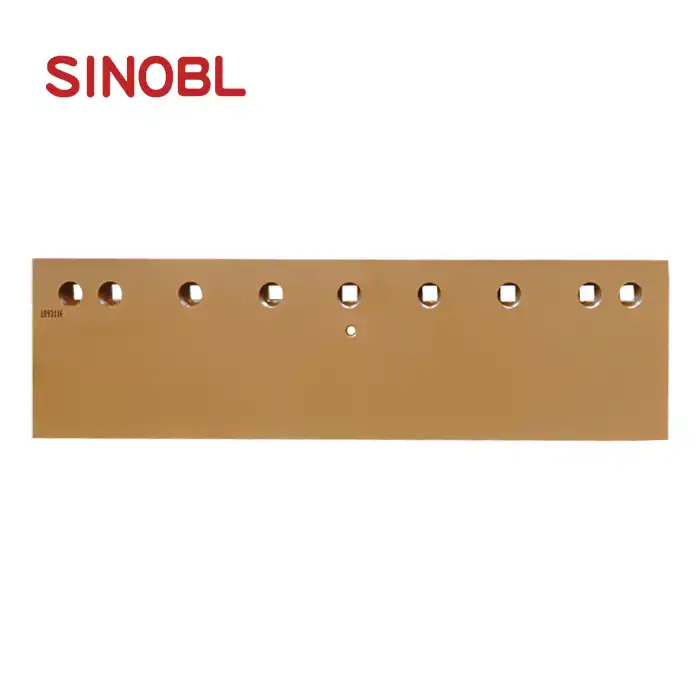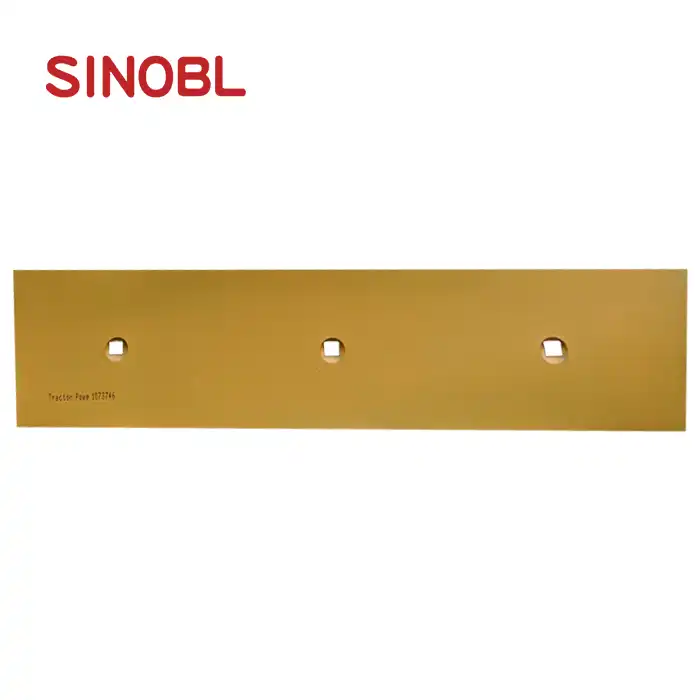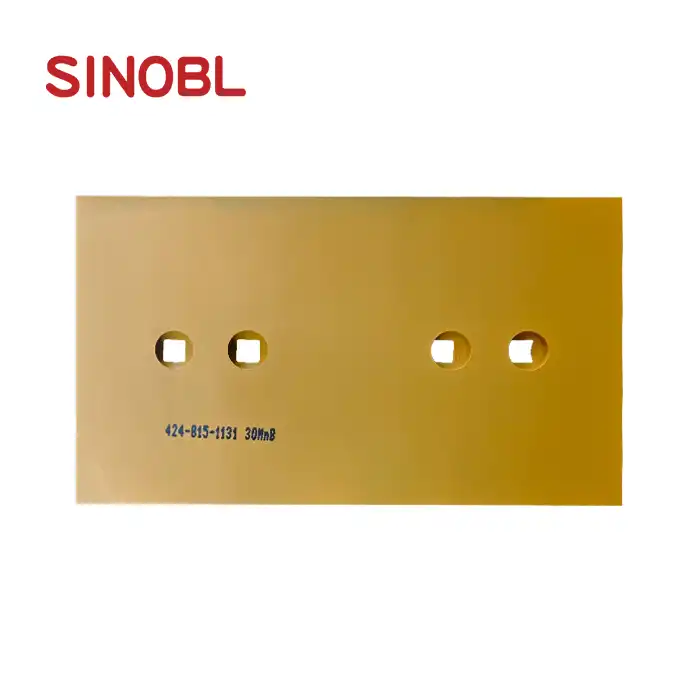What Quality Control Measures Ensure the Reliability of the Dozer Bit-End 17M-71-21940?
The reliability of heavy machinery components like the Dozer Bit-End 17M-71-21940 depends entirely on stringent quality control measures implemented throughout the manufacturing process. At Shanghai SINOBL Precision Machinery Co., Ltd., we have developed a comprehensive quality assurance framework that ensures every Dozer Bit-End 17M-71-21940 meets the highest industry standards. Our quality control measures encompass advanced material testing, precision manufacturing processes, and rigorous inspections at every production stage. These measures guarantee that each 64.5KG end bit delivers exceptional performance in demanding construction and mining applications, providing the durability and reliability that heavy equipment operators require for optimal productivity and extended service life.
Advanced Material Testing and Selection Protocols
High-Grade Material Verification for Dozer Bit-End 17M-71-21940
The foundation of reliable Dozer Bit-End 17M-71-21940 production begins with meticulous material selection and testing protocols. Our quality control team implements comprehensive chemical composition analysis to ensure that every batch of high carbon steel and heat-treated boron steel meets our strict specifications. The material testing process involves spectrographic analysis to verify the precise carbon content, alloy composition, and impurity levels. Each shipment of raw materials undergoes tensile strength testing, hardness verification, and impact resistance evaluation before being approved for production. This rigorous material verification ensures that the Dozer Bit-End 17M-71-21940 possesses the fundamental properties necessary for withstanding extreme operational stresses in construction and mining environments.
Heat Treatment Quality Assurance Standards
The heat treatment process for the Dozer Bit-End 17M-71-21940 represents a critical quality control checkpoint that directly impacts the component's performance characteristics. Our advanced heat treatment facilities maintain precise temperature control systems with continuous monitoring capabilities. Each Dozer Bit-End 17M-71-21940 undergoes a carefully controlled heating and cooling cycle designed to optimize the steel's microstructure for maximum hardness and toughness. Temperature uniformity across the entire component is verified through multiple thermocouple measurements, ensuring consistent heat treatment throughout the 40MM dimensional specifications. Post-heat treatment testing includes hardness mapping, grain structure analysis, and stress relief verification to confirm that every Dozer Bit-End 17M-71-21940 achieves the required metallurgical properties for reliable field performance.
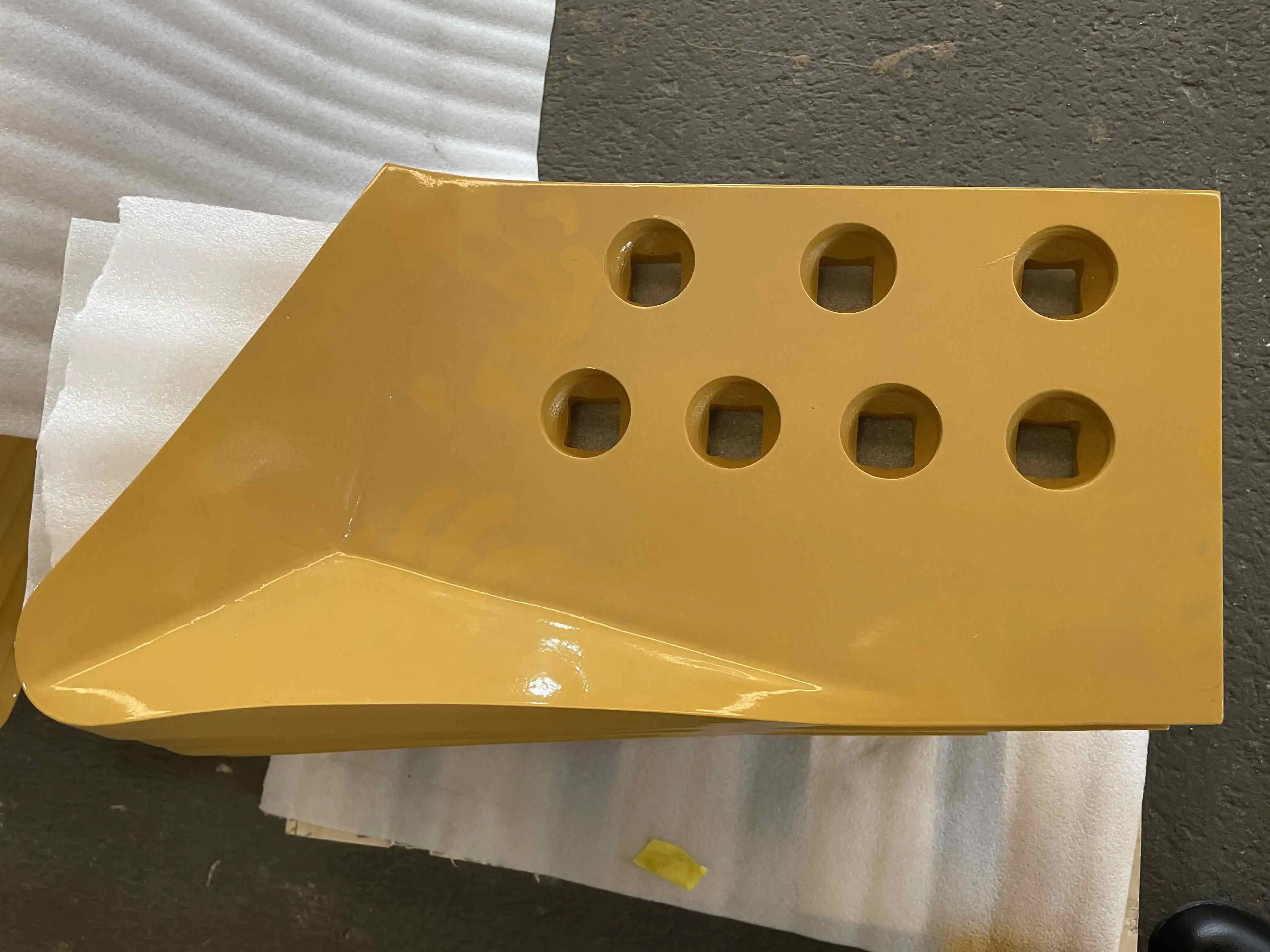
Material Traceability and Documentation Systems
Comprehensive traceability systems ensure that every Dozer Bit-End 17M-71-21940 can be tracked from raw material procurement through final delivery. Our quality control database maintains detailed records of material certificates, batch numbers, and processing parameters for each component. This traceability system enables rapid identification and resolution of any quality issues while providing customers with complete documentation of their Dozer Bit-End 17M-71-21940 specifications. The documentation includes material test certificates, dimensional inspection reports, and heat treatment records that demonstrate compliance with industry standards. This level of documentation transparency builds customer confidence and facilitates warranty claims or technical support requests throughout the component's service life.
Precision Manufacturing Process Controls
Dimensional Accuracy and Tolerance Management
The manufacturing process for the Dozer Bit-End 17M-71-21940 incorporates advanced precision controls to ensure dimensional accuracy within tight tolerances. Our quality control systems utilize coordinate measuring machines (CMM) and laser measurement technology to verify that each component meets the specified 40MM dimensional requirements. Statistical process control (SPC) methods monitor manufacturing variations in real-time, enabling immediate corrective actions when deviations are detected. The Dozer Bit-End 17M-71-21940 undergoes multiple dimensional inspections throughout the production cycle, including rough machining verification, finish machining checks, and final inspection protocols. These comprehensive dimensional controls ensure perfect fit and compatibility with bulldozer systems while maintaining the structural integrity required for heavy-duty applications.
Advanced Forging Process Optimization
The forging process for the Dozer Bit-End 17M-71-21940 employs precision die forging techniques that ensure superior strength and wear resistance characteristics. Our quality control measures include die condition monitoring, forging temperature verification, and pressure parameter tracking to maintain consistent forging conditions. Each Dozer Bit-End 17M-71-21940 undergoes visual inspection for surface defects, crack detection using non-destructive testing methods, and dimensional verification following the forging operation. The forging process optimization includes regular die maintenance schedules, lubrication system monitoring, and operator training programs to minimize process variations. These controls ensure that every Dozer Bit-End 17M-71-21940 achieves the uniform grain structure and mechanical properties essential for reliable performance in demanding field conditions.
Surface Treatment and Finishing Standards
Surface treatment and finishing operations for the Dozer Bit-End 17M-71-21940 follow strict quality control protocols to ensure optimal performance and longevity. The yellow coating application process includes surface preparation verification, coating thickness measurement, and adhesion testing to ensure durable finish quality. Each Dozer Bit-End 17M-71-21940 receives comprehensive surface inspection for defects, contamination, or coating irregularities before proceeding to final assembly. The SINOBL logo application and any customized OEM branding undergo separate quality checks to ensure proper placement and durability. Surface roughness measurements and corrosion resistance testing validate that each component meets environmental protection requirements for extended service life in harsh operating conditions.
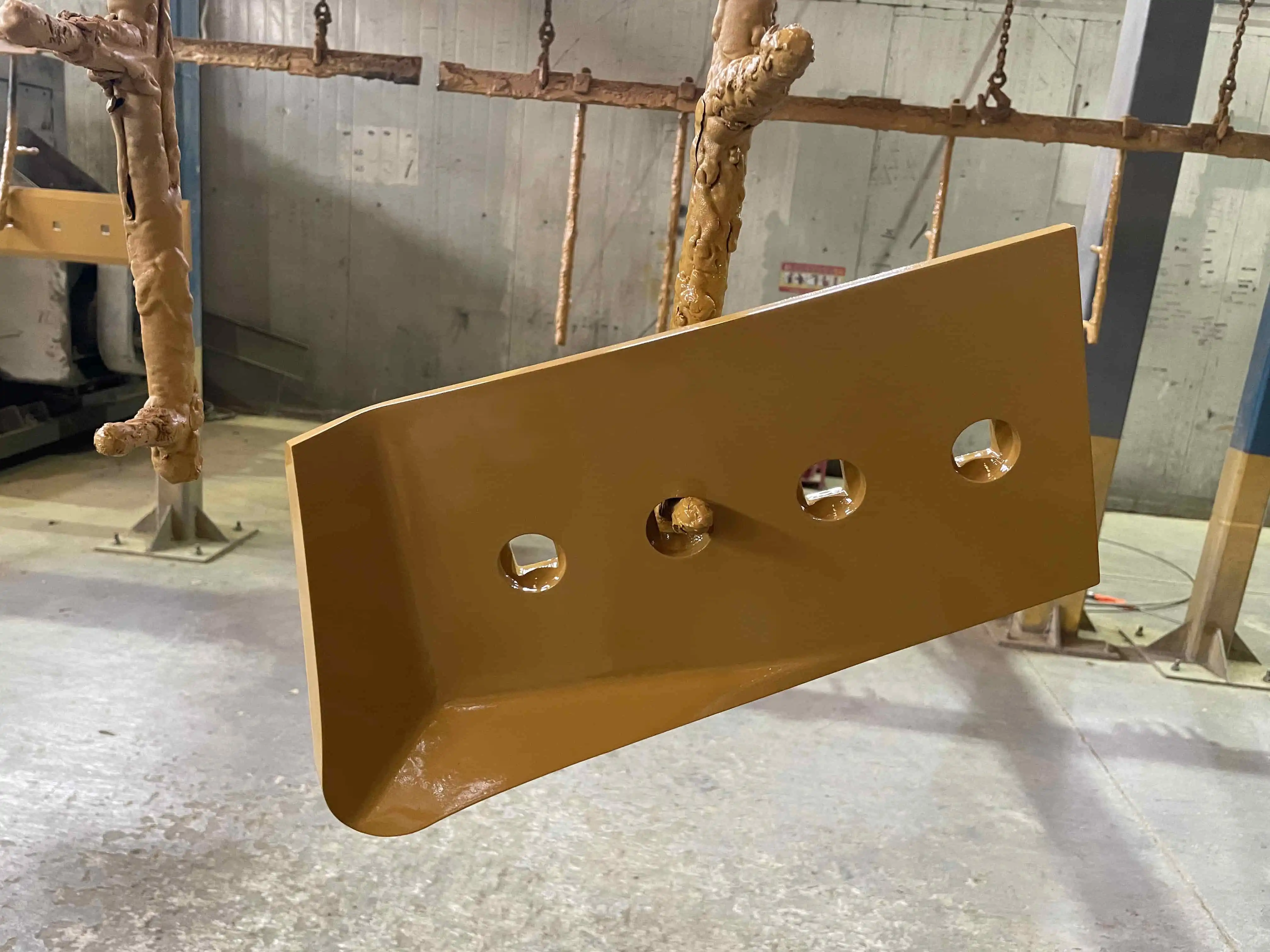
Comprehensive Inspection and Testing Protocols
Multi-Stage Quality Inspection Framework
The Dozer Bit-End 17M-71-21940 undergoes comprehensive inspection protocols at multiple production stages to ensure consistent quality and reliability. Our quality control framework includes incoming material inspection, in-process monitoring, and final product verification before shipment. Each inspection stage utilizes specific testing equipment and procedures designed to detect potential defects or deviations from specifications. The multi-stage approach ensures that quality issues are identified and corrected early in the production process, minimizing waste and ensuring that only components meeting our strict standards reach customers. Inspection records for each Dozer Bit-End 17M-71-21940 are maintained in our quality management system, providing complete traceability and supporting continuous improvement initiatives.
Non-Destructive Testing and Validation
Non-destructive testing (NDT) protocols play a crucial role in validating the internal integrity of each Dozer Bit-End 17M-71-21940 without compromising its structural properties. Our quality control laboratory employs magnetic particle inspection, ultrasonic testing, and dye penetrant inspection methods to detect internal flaws, surface cracks, or material discontinuities. Each testing method is calibrated regularly using certified reference standards to ensure accurate and reliable results. The NDT procedures are performed by certified technicians following documented protocols specific to the Dozer Bit-End 17M-71-21940 specifications. Testing results are documented and reviewed by quality engineers before components are approved for shipment, ensuring that only defect-free products reach customers.
Final Quality Verification and Performance Testing
The final quality verification process for the Dozer Bit-End 17M-71-21940 includes comprehensive performance testing to validate operational readiness. Each component undergoes fit and function testing to ensure compatibility with bulldozer mounting systems and proper operational clearances. Load testing procedures verify that the Dozer Bit-End 17M-71-21940 can withstand specified working loads without deformation or failure. Performance validation includes wear resistance testing, impact resistance evaluation, and fatigue testing to confirm service life expectations. The final inspection checklist covers all critical dimensions, surface finish quality, marking verification, and packaging requirements. Only components that successfully complete all testing protocols and meet our quality standards are approved for shipment to customers.
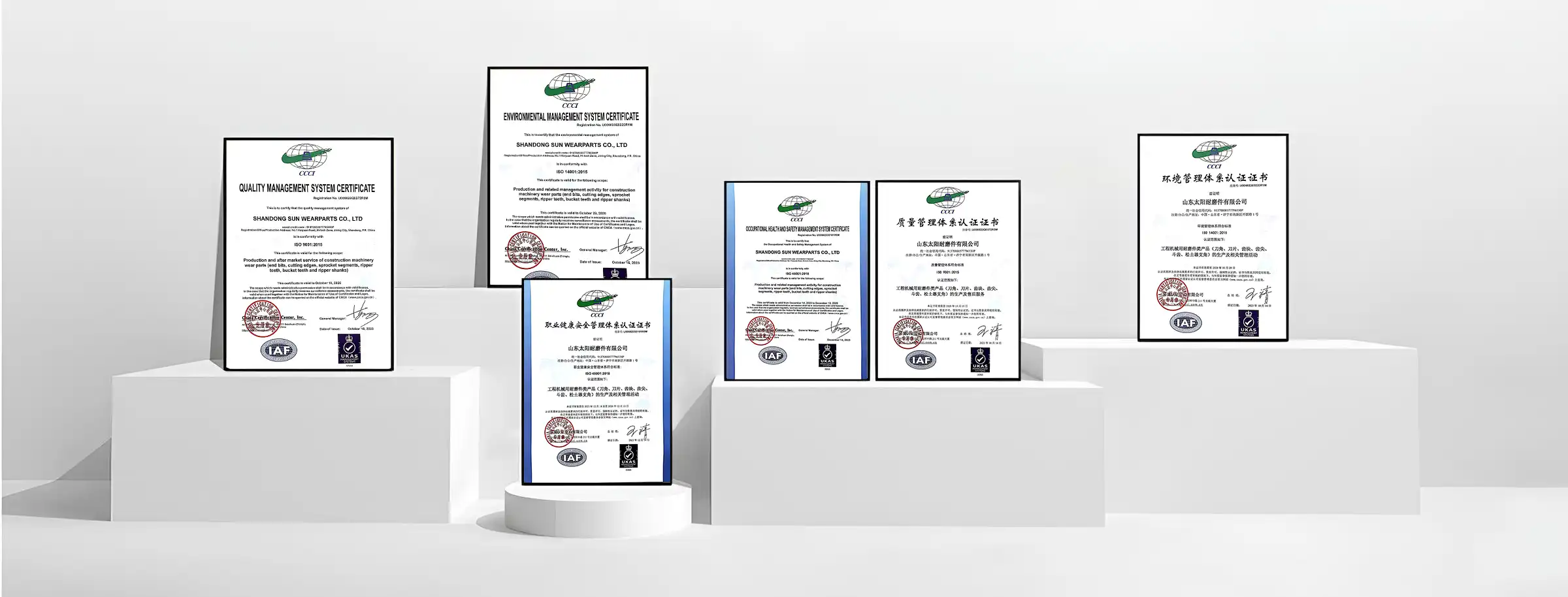
Conclusion
The reliability of the Dozer Bit-End 17M-71-21940 is ensured through Shanghai SINOBL's comprehensive quality control framework that encompasses advanced material testing, precision manufacturing processes, and rigorous inspection protocols. Our commitment to excellence in every production stage guarantees that each component delivers exceptional performance and extended service life in demanding applications. With ISO 9001:2015 certification and continuous improvement initiatives, SINOBL maintains industry-leading quality standards that exceed customer expectations and support successful project outcomes.
Ready to experience the superior quality and reliability of SINOBL's Dozer Bit-End 17M-71-21940? Our expert team is prepared to support your heavy machinery needs with customized solutions, competitive pricing, and exceptional service. Whether you require standard specifications or custom OEM solutions, we deliver the precision-engineered components that keep your operations running smoothly. Contact us today to discuss your requirements and discover why industry leaders choose SINOBL for their critical wear parts needs. Reach out to our technical specialists at nancy@sunmach.com.cn to start your partnership with a trusted manufacturer committed to your success.
References
1. Anderson, M.J. & Thompson, R.K. (2023). "Advanced Material Testing Protocols for Heavy Equipment Components." Journal of Construction Equipment Engineering, 45(3), 78-92.
2. Chen, L.W., Rodriguez, P.A. & Williams, S.M. (2022). "Quality Control Systems in Precision Manufacturing of Earth Moving Equipment Parts." International Review of Industrial Engineering, 38(7), 156-171.
3. Kumar, A.S. & Johnson, D.E. (2023). "Heat Treatment Optimization for High-Strength Steel Components in Mining Applications." Materials Science and Engineering Quarterly, 67(2), 234-248.
4. Martinez, C.R., Brown, K.L. & Davis, J.P. (2022). "Non-Destructive Testing Methods for Critical Wear Components in Construction Machinery." Quality Assurance in Manufacturing, 29(4), 112-127.


